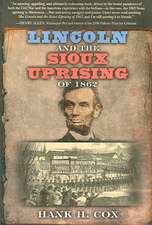US Health Policy and Health Care Delivery: Doctors, Reformers, and Entrepreneurs
Autor Carl F. Ameringeren Limba Engleză Paperback – 14 mar 2018
| Toate formatele și edițiile | Preț | Express |
|---|---|---|
| Paperback (1) | 185.39 lei 39-44 zile | |
| Cambridge University Press – 14 mar 2018 | 185.39 lei 39-44 zile | |
| Hardback (1) | 544.46 lei 6-8 săpt. | |
| Cambridge University Press – 14 mar 2018 | 544.46 lei 6-8 săpt. |
Preț: 185.39 lei
Nou
Puncte Express: 278
Preț estimativ în valută:
35.48€ • 37.93$ • 29.58£
35.48€ • 37.93$ • 29.58£
Carte tipărită la comandă
Livrare economică 14-19 aprilie
Preluare comenzi: 021 569.72.76
Specificații
ISBN-13: 9781107539846
ISBN-10: 1107539846
Pagini: 188
Ilustrații: 1 b/w illus. 3 tables
Dimensiuni: 152 x 228 x 11 mm
Greutate: 0.28 kg
Editura: Cambridge University Press
Colecția Cambridge University Press
Locul publicării:New York, United States
ISBN-10: 1107539846
Pagini: 188
Ilustrații: 1 b/w illus. 3 tables
Dimensiuni: 152 x 228 x 11 mm
Greutate: 0.28 kg
Editura: Cambridge University Press
Colecția Cambridge University Press
Locul publicării:New York, United States
Cuprins
1. Health policy and health care delivery; 2. The scientific practitioner, 1870–1918; 3. Group medical practice and group insurance, 1919–1943; 4. The hospital as community health center, 1945–1965; 5. The turn to market competition, 1965–1995; 6. The emergence of corporate health systems, 1996–2015.
Recenzii
'Anyone curious about why health care is so daunting in the United States will appreciate this well-researched, eminently readable summary of how it is delivered and financed.' Humayun J. Chaudhry, DO, MACP, President and CEO of Federation of State Medical Boards
'In clear broad strokes, Ameringer offers a cogent analysis of how and why the US health care system came to be so different from the more effective and less costly systems that exist in every other economically advanced nation. Tracing the evolution of health care from the late nineteenth century through 2015, he identifies the kaleidoscopic combination of medical developments, socio-political policies, and uncoordinated financial programs that collectively produced the bloated and irrational arrangements now in place. This book should be read by all concerned citizens, by college classes, and especially by policymakers.' James C. Mohr, University of Oregon
'In US Health Policy and Health Care Delivery: Doctors, Reformers, and Entrepreneurs, Carl F. Ameringer uses his combined expertise in health policy and law to bring to the fore an alternative explanation of why universal health care in the US remains elusive. He deftly weaves together a compelling argument that the ills of our current system are less the result of failures in insurance coverage than they are the historical evolution of how we deliver health care, focusing on high cost hospital and specialty care. His account deserves equal billing with the more pervasive account of health care financing and the book deserves a prominent place on the bookshelf of all serious health law and policy scholars and health care reformers.' Diane Hoffmann, University of Maryland
'In this well-argued, thorough, and convincing analysis of inherited and invented problems in American health policy, Carl F. Ameringer presents this nation's health services as a hydra-headed monster of competing interests. Given the abundant historical evidence that partial solutions create new problems, effective policy proposals today must include broad support. A must-read for policy makers and the general public.' Rosemary Stevens, author of A Time of Scandal: Charles R. Forbes, Warren G. Harding and the Making of the Veterans Bureau
'Ameringer takes on the timely topics of health care policy and delivery and examines them from a well-researched historical perspective to interrogate how and why the US health care system is different from systems of economically similar nations. Through this historical perspective, Ameringer argues that present-day policy changes will prove ineffective in lowering costs unless significant structural changes are made to how health care is delivered and organized. The book is generally organized chronologically and takes readers through the history of American health care, starting in the late 1800s. Ameringer writes in an approachable, engaging style that would be appropriate for an undergraduate audience. A brief index is included, but to fully understand the context of indexed subjects, readers will be better off reading the entire book, which is quite short. This text is an excellent source for anyone studying US health care systems and policy. Recommended.' C. A. Tomlinson, Choice
'A clear, concise, and informative history of the failure of the United States to establish a system of universal health care … well suited for graduate or undergraduate courses in the history of medicine and health or in public policy. It also deserves attention from scholars, policy makers, and anyone concerned with the future of health care in America.' Margaret Marsh, Journal of American History
'The book nicely incorporates stories of specific individuals and organizations in local or state contexts whose experiments or actions took on larger significance. This is a compact, highly readable story of the jostling of interests, and Ameringer's book wrangles the unruly history of the U.S. healthcare system into a neater and more linear story.' Miriam J. Laugesen, Bulletin of the History of Medicine
'This is a compact, highly readable story of the jostling of interests, and Ameringer's book wrangles the unruly history of the U.S. healthcare system into a neater and more linear story.' Miriam J. Laugesen, Bulletin of the History of Medicine
'In clear broad strokes, Ameringer offers a cogent analysis of how and why the US health care system came to be so different from the more effective and less costly systems that exist in every other economically advanced nation. Tracing the evolution of health care from the late nineteenth century through 2015, he identifies the kaleidoscopic combination of medical developments, socio-political policies, and uncoordinated financial programs that collectively produced the bloated and irrational arrangements now in place. This book should be read by all concerned citizens, by college classes, and especially by policymakers.' James C. Mohr, University of Oregon
'In US Health Policy and Health Care Delivery: Doctors, Reformers, and Entrepreneurs, Carl F. Ameringer uses his combined expertise in health policy and law to bring to the fore an alternative explanation of why universal health care in the US remains elusive. He deftly weaves together a compelling argument that the ills of our current system are less the result of failures in insurance coverage than they are the historical evolution of how we deliver health care, focusing on high cost hospital and specialty care. His account deserves equal billing with the more pervasive account of health care financing and the book deserves a prominent place on the bookshelf of all serious health law and policy scholars and health care reformers.' Diane Hoffmann, University of Maryland
'In this well-argued, thorough, and convincing analysis of inherited and invented problems in American health policy, Carl F. Ameringer presents this nation's health services as a hydra-headed monster of competing interests. Given the abundant historical evidence that partial solutions create new problems, effective policy proposals today must include broad support. A must-read for policy makers and the general public.' Rosemary Stevens, author of A Time of Scandal: Charles R. Forbes, Warren G. Harding and the Making of the Veterans Bureau
'Ameringer takes on the timely topics of health care policy and delivery and examines them from a well-researched historical perspective to interrogate how and why the US health care system is different from systems of economically similar nations. Through this historical perspective, Ameringer argues that present-day policy changes will prove ineffective in lowering costs unless significant structural changes are made to how health care is delivered and organized. The book is generally organized chronologically and takes readers through the history of American health care, starting in the late 1800s. Ameringer writes in an approachable, engaging style that would be appropriate for an undergraduate audience. A brief index is included, but to fully understand the context of indexed subjects, readers will be better off reading the entire book, which is quite short. This text is an excellent source for anyone studying US health care systems and policy. Recommended.' C. A. Tomlinson, Choice
'A clear, concise, and informative history of the failure of the United States to establish a system of universal health care … well suited for graduate or undergraduate courses in the history of medicine and health or in public policy. It also deserves attention from scholars, policy makers, and anyone concerned with the future of health care in America.' Margaret Marsh, Journal of American History
'The book nicely incorporates stories of specific individuals and organizations in local or state contexts whose experiments or actions took on larger significance. This is a compact, highly readable story of the jostling of interests, and Ameringer's book wrangles the unruly history of the U.S. healthcare system into a neater and more linear story.' Miriam J. Laugesen, Bulletin of the History of Medicine
'This is a compact, highly readable story of the jostling of interests, and Ameringer's book wrangles the unruly history of the U.S. healthcare system into a neater and more linear story.' Miriam J. Laugesen, Bulletin of the History of Medicine
Notă biografică
Descriere
Ameringer explains the development and current state of America's overspecialized, uncoordinated, and fragmented healthcare industry.

















